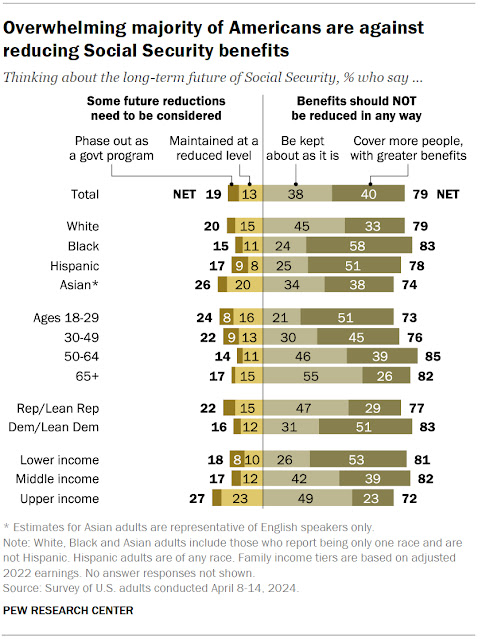From Reducing Processing Centers’ Pending Actions, a report by Social Security's Office of Inspector General (OIG):
... SSA met its annual PC [Payment Center] pending actions performance measure goal in 4 of the 6 FYs [Fiscal Years] between FY 2018 through 2023. SSA reported it did not meet its goals in the remaining 2 FYs because of unexpected staff reductions, increased workloads, and less than expected overtime funding it would have used to pay employees to process more PC pending actions.
Although SSA achieved its PC pending actions performance goals in 4 of the last 6 FYs, there was no overall reduction in PC pending actions over those 6 years. In fact, the PC pending actions backlog increased from 3.2 million in FY 2018 to 4.6 million in FY 2023. As the backlog grows, many PC pending actions remain unresolved for long periods of time. From a sample of 139 pending actions, 102 (73 percent) were pending for 300 days or more, with 60 of the 102 pending for 500 days or more.
Delays in processing PC pending actions can lead to higher improper payments, which increased some beneficiaries’ financial burden as they waited longer for underpayments or were charged with increased overpayment amounts. If SSA resolved the PC pending actions we reviewed at the earliest possible instance, we estimate it would have determined approximately 528,000 beneficiaries were improperly paid approximately $534 million. After the pending actions were not processed for 12 months, the improper payment amount for those same beneficiaries rose to approximately $756 million. By the time of our review, many of the PC pending actions had been pending for longer than 12 months, and the improper payment amount had increased to approximately $1.1 billion.
Notice that it didn't seem to bother OIG that the payment centers were frequently failing to pay benefits for long periods of time. The only thing they seemed to have been concerned about was an increase in overpayments. This in a nutshell is the OIG outlook on the Social Security world -- It doesn't matter when or if you pay claimants what they're due; the only thing that counts is that you not overpay them. That outlook is a prescription for disaster for claimants.



